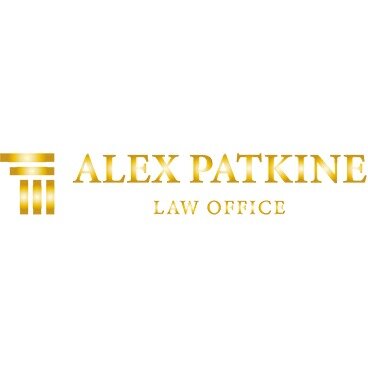Best Tax Lawyers in Haifa
Share your needs with us, get contacted by law firms.
Free. Takes 2 min.
List of the best lawyers in Haifa, Israel
About Tax Law in Haifa, Israel
Tax law in Haifa, like the rest of Israel, is regulated by a variety of legislation, including the Income Tax Ordinance, Value Added Tax (VAT) Law, and various municipal taxes. The taxation system is designed to generate revenue for public services and infrastructural projects and can be quite complex, involving multiple layers of regulation and compliance requirements.
Why You May Need a Lawyer
Engaging a lawyer specializing in tax law can be beneficial in numerous situations. Common circumstances where professional legal help is essential include, but are not limited to:
- Facing an audit by tax authorities or the municipality.
- Starting a new business and needing guidance on tax compliance.
- Disputing a tax assessment or penalty.
- Planning for estate and inheritance taxes.
- Navigating international taxation for cross-border transactions and expatriate matters.
- Handling complex tax returns and seeking tax planning strategies for optimization.
Local Laws Overview
In Haifa, taxation includes several key components:
- Income Tax: Progressive rates based on earnings. Individuals and businesses must file annual returns.
- Value Added Tax (VAT): Standard rate is 17%, applied to most goods and services. Some items may be exempt or zero-rated.
- Municipal Taxes (Arnona): Levied on properties based on square meters and designated use (residential, commercial, etc.).
- Real Estate Purchase Tax: A tax on the acquisition of real estate, varying by property value and type.
- Corporate Tax: Applied to company profits, currently set at 23% in Israel.
Both national and local regulations can influence taxable activities, so thorough knowledge and careful planning are crucial to ensuring compliance and optimizing tax liabilities.
Frequently Asked Questions
1. How do I file my income tax return in Haifa?
You can file your income tax return electronically through the Israel Tax Authority's online portal, or you can submit paper forms at your local tax office in Haifa.
2. What is the current VAT rate in Haifa?
The current VAT rate in Israel, including Haifa, is 17%.
3. Are there any property tax exemptions in Haifa?
Yes, certain property owners may be eligible for exemptions or reduced rates on Arnona, such as senior citizens, disabled individuals, and nonprofit organizations, depending on specific criteria.
4. How can I dispute a tax assessment in Haifa?
You can dispute a tax assessment by filing an appeal with the Israel Tax Authority within the specified deadline. Consulting a tax lawyer can help strengthen your case.
5. What are the penalties for late tax payments?
Penalties include interest charges and fines, which can accumulate the longer you delay payment. It’s advisable to address tax obligations promptly to avoid additional costs.
6. How do I register for VAT in Haifa?
You must register with the VAT office through the Israel Tax Authority. This typically applies to businesses and individuals exceeding a certain turnover threshold.
7. Can I get a refund on VAT in Haifa?
If the VAT paid on your purchases exceeds what you've collected from sales, or if you export goods/services, you might be eligible for a VAT refund. Submitting proper documentation is essential.
8. What documentation do I need for a tax audit?
You'll need financial records, receipts, tax returns, bank statements, and any other documents that substantiate your reported income and expenses.
9. Who is subject to corporate tax in Haifa?
All companies operating in Haifa must pay corporate tax on their profits, including both resident and foreign entities engaged in business activities within Israel.
10. How can I benefit from tax incentives in Haifa?
Various tax incentives are available for qualifying investments, research and development activities, and operating within certain designated regions. Consulting a tax professional can help identify applicable benefits.
Additional Resources
For more information or assistance, the following resources can be highly beneficial:
- Israel Tax Authority (Rashut HaMas Hachnasah) - Government agency responsible for tax collection and enforcement.
- Municipality of Haifa - Provides information on local taxes, such as Arnona.
- Professional associations like the Israeli Bar Association or the Institute of Certified Public Accountants in Israel - Offer professional help and resources.
Next Steps
If you need legal assistance in tax matters, here’s how to proceed:
- Assessment: Evaluate your current situation to understand your specific needs and the scope of the legal issue.
- Research: Identify experienced tax lawyers in Haifa by looking up reviews, seeking recommendations, and checking professional affiliations.
- Consultation: Schedule an initial meeting with a lawyer to discuss your case, understand their approach, and determine compatibility.
- Engagement: Once you find a suitable lawyer, formalize the engagement by signing a retainer agreement and discuss the next steps based on their advice.
Taking these steps can help you efficiently navigate the complexities of tax law in Haifa, ensuring you comply with regulations and optimize your financial situation.
Lawzana helps you find the best lawyers and law firms in Haifa through a curated and pre-screened list of qualified legal professionals. Our platform offers rankings and detailed profiles of attorneys and law firms, allowing you to compare based on practice areas, including Tax, experience, and client feedback.
Each profile includes a description of the firm's areas of practice, client reviews, team members and partners, year of establishment, spoken languages, office locations, contact information, social media presence, and any published articles or resources. Most firms on our platform speak English and are experienced in both local and international legal matters.
Get a quote from top-rated law firms in Haifa, Israel — quickly, securely, and without unnecessary hassle.
Disclaimer:
The information provided on this page is for general informational purposes only and does not constitute legal advice. While we strive to ensure the accuracy and relevance of the content, legal information may change over time, and interpretations of the law can vary. You should always consult with a qualified legal professional for advice specific to your situation.
We disclaim all liability for actions taken or not taken based on the content of this page. If you believe any information is incorrect or outdated, please contact us, and we will review and update it where appropriate.















